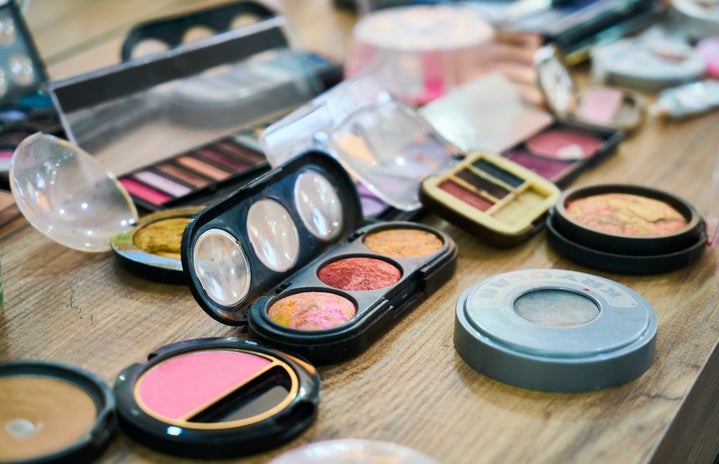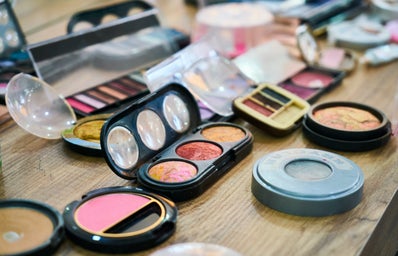Beauty is defined as a combination of qualities, such as shape or colour that pleases the aesthetic senses, especially the sight. These ‘qualities’ of beauty are all around us; they are embedded into our brains and have gradually altered what we perceive as beautiful. The influence of the media and societal pressures have made near-impossible standards, leading to low self-esteem and an increase of make-up to be bought by 9% by 2024 in the UK. However, the global perception of beauty in this era is centred around Western European models. The effect of the western model integrating into East Asian culture is leading to people committing extreme practices in order to be considered as ‘beautiful’.
WIDENING OF THE EYES
Western beauty standards have an importance on eyeshadow and it has become a necessary step in western makeup to look beautiful. Influencers such as James Charles, a popular YouTuber, who released a bright and colourful eyeshadow palette delivering an experimental and playful way to makeup, have highlighted the importance of this step. Furthermore, the appearance of having big, doe eyes that you can get ‘lost in’ is viewed as beautiful in Western society. This is evidenced through celebrities on the red carpet to cartoon Disney princesses.
The rapid growth in the popularity of eyeshadow that enhances big eyes may have influenced the urge for Asian people to change the look of their eyes. One of the less harmful techniques is by using tape to create the western eye with instant effects. However, this product has influenced many of them to undergo blepharoplasty which is a cosmetic surgery to give the upper eyelid a crease, therefore the eyes are widened. This procedure can happen on any Asian person without the double eyelid, with children getting the surgery as young as nine with parental consent. As well as this, nine out of ten Asian teenagers wish to get cosmetic surgery in order to address their insecurities. It is clear that the perception of beauty is having a profound effect on Asian people and can even lead to parents projecting harmful beauty standards onto their children.
WHITEWASHING
White westerners dominate the modelling industry, accounting for 78% of all models. And whilst western culture has become focused on being tanned, what remains is that our magazines and social media are covered with white models. Due to the limited range of diversity in this region, this creates unjustified beauty expectations for people of colour to live up to. Over the past years, there has been a new term brought to the industry called ‘model minority’ in order to bring in a greater range of models. While this term highlights a possible increase in diversity over the years, it also has the potential to segregate and marginalise Asian models from what is considered a ‘normal’ model and to present them as defying beauty standards.
Due to the cultural beauty of whiteness, Asian people are undergoing methods to whiten their skin. The desire for white skin has increased the consumption of whitening products over the years, with 54% of Asian people using skin-whitening products. These products advertise to make the skin more ‘pure’ and further reinforce whiteness as a beauty standard. The dramatic growth in the purchase of whitening products amplifies the social pressures placed on Asian people to conform to society, giving the impression that they must change their skin colour in order to succeed. With 67% of business owners being white, many Asian men and women have been led to believe that they must whiten their skin in order to fit in with society and, unfortunately, to compete in today’s competitive job market.
The rapid growth of the Asian beauty industry is quickly followed by social concerns about this new focus, but what is clear is that there must be an increase in media diversity so that everyone knows they are beautiful.


